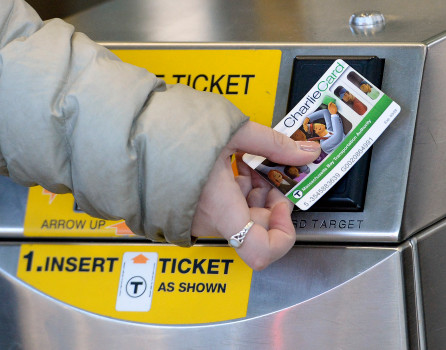Making Fare Collection Fair
How should we fund transit? Who should pay, and how much? Among politicians and citizens alike, any discussion involving fares is almost guaranteed to invoke heated debate and strong opinions on all sides. The level fares are set at, the manner in which they are paid and the speed at which they rise are all points of contention which often pit transit managers, local politicians, advocates, human services providers, and riders against each other. Whenever fees are associated with a service perceived as a “public good,” questions of equity and enforcement are bound to arise. Transit agencies across the country are challenged with effectively managing fare evasion, especially as features like off-board payment and all-door boarding are expanded and new technology broadens potential avenues for payment. Fare enforcement is one tool to recoup expenses; some also feel that enforcement officers provide additional operator and passenger safety. However, fare enforcement policies with draconian penalties can work against agency goals for equity, and the experience of interacting with fare enforcement may not make all riders feel safe. That’s why fares were a key part of many proposals in this year’s Better Government Competition (BGC)!
Transportation Choices Coalition (TCC), a transportation advocacy group based in Seattle, Washington, has set out to make fare collection fair for all riders. Building off a study by King County (WA) Metro, Transportation Choices is working with advocates for disadvantaged groups, including the homeless, to reexamine fare collection policies. TCC’s goal is to push agencies to consider comprehensive approaches to reducing fare evasion, including enforcement policies that deter evasion without being unnecessarily punitive; increasing access to public transportation for underserved communities; providing riders with affordable fare programs, and more and better ways to pay.
King County Metro’s 2018 study of its fare enforcement model indicated that the strategies used – issuing expensive citations and referring citations to the courts for resolution – were having adverse impacts, particularly on people of color and vulnerable populations such as individuals experiencing homelessness. Transportation Choices’ ongoing work has so far found that when agencies act to reduce punitive policies and proactively provide affordable access to transit, transit systems can better serve passengers while treating riders with respect.
The advocates have been working with King County Metro on how to design and implement a dual approach for revising fare enforcement models to include 1) training for fare enforcement officials to equip them with skills to minimize adverse impacts; and 2) a resolution process that fosters access to fare payment resources and varying, accessible options to resolve fare violations without creating lasting impacts to an individual, particularly those who may be experiencing homelessness or other challenges.
At a time when Boston is consumed in its own fares debate, and when fare evasion on the T shows no signs of decreasing, it is valuable to see how other cities and states are improving their own fare collection systems. Make sure to attend the Better Government Competition awards dinner on September 16th to learn more about transportation innovation across the country.




Leave a Reply
Want to join the discussion?Feel free to contribute!